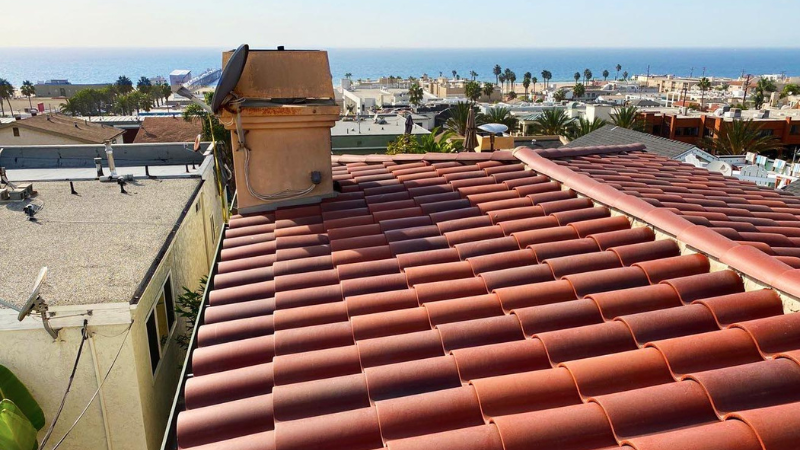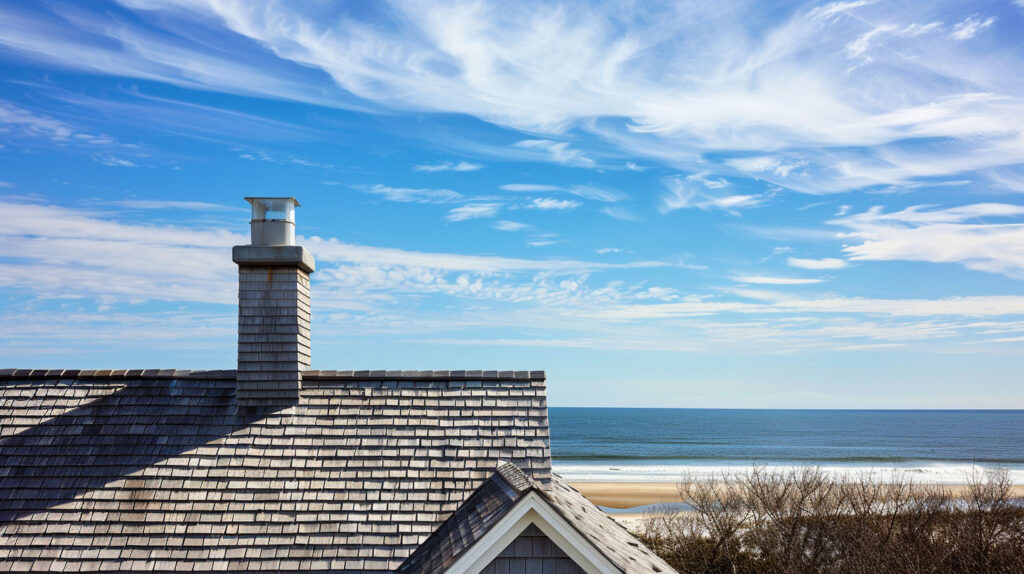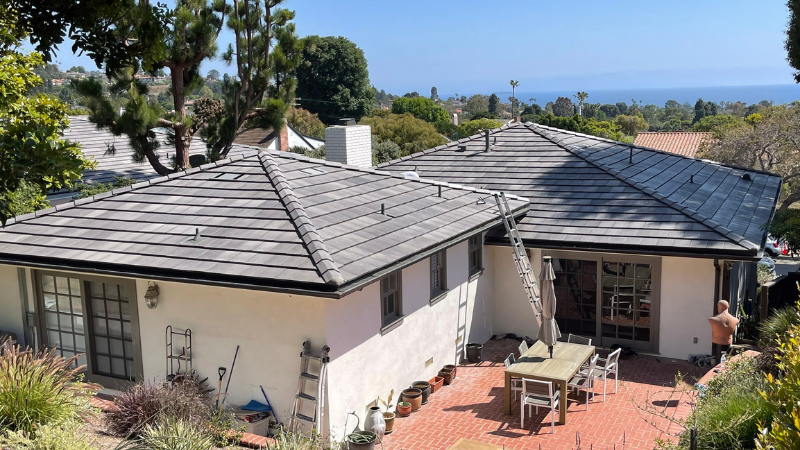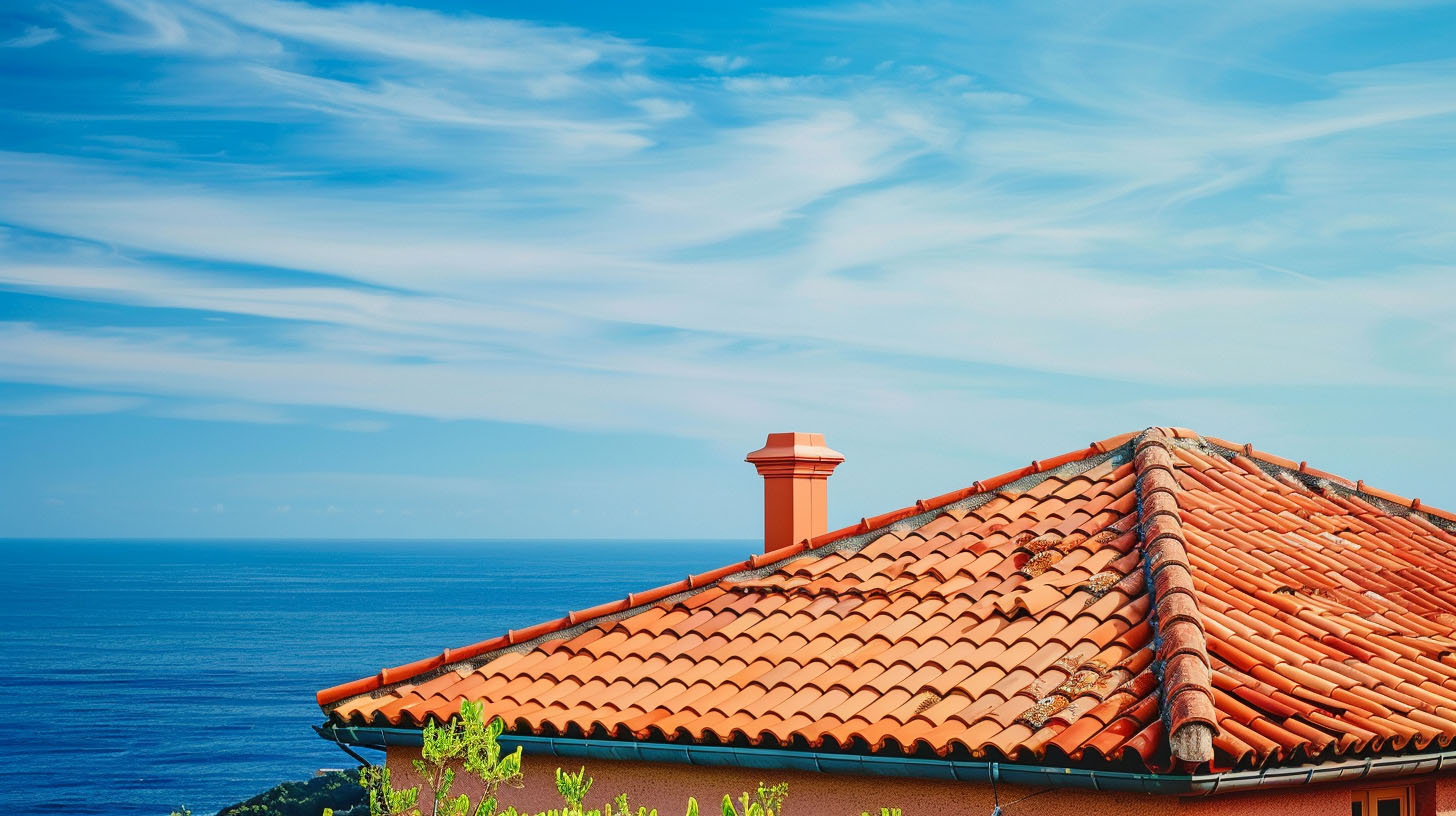How Salt Air Affects Roofs Near the Coast
Living near the coast is alluring, but your roof faces unique challenges due to constant exposure to salt air. The combination of salty moisture and winds common in coastal regions accelerates material wear and tear. If you own a home in Orange County, CA, understanding how salt air affects roofing materials is critical for longevity. Our team at Specialist Roofing & Repair, backed by awards like the Owens Corning Platinum Preferred Contractor designation, is here to guide you through effective solutions to safeguard your roof against the elements.
The Unique Challenges of Coastal Roofing in Orange County, CA
Coastal homes face environmental challenges unlike those in inland areas. Constant proximity to salty air, fluctuating humidity levels, and high winds create conditions that accelerate roof aging and deterioration. These factors demand roofing solutions designed specifically for coastal conditions.
In Orange County, CA, roofs are subject to the combined impact of moisture, salt spray, and UV exposure all year round. Specialist Roofing & Repair uses industry-leading brands like Owens Corning, GAF, and Polyglass to ensure your roof withstands the unique challenges coastal conditions bring.
Understanding Salt Air and Its Properties
The presence of salt air in coastal environments significantly influences the durability of roofing materials. Salt, combined with moisture and humidity, creates corrosive electrochemical reactions that can lead to deterioration over time. Particularly, constant exposure to salt spray can accelerate erosion and weaken metal components, causing premature aging. Understanding how these environmental factors impact roofs is crucial for homeowners seeking to protect their homes from harsh coastal conditions. Effective maintenance practices and protective coatings can mitigate the adverse effects of salty air.
Impact of Humidity and Wind Patterns on Roofs
Coastal areas experience a unique interplay of humidity and wind patterns, significantly impacting roofing materials. High humidity levels can accelerate moisture accumulation, leading to potential issues like mold growth and structural weakness. Additionally, strong winds carry salt spray, which intensifies the corrosive effects on roofs, particularly on metal components. Regular inspections and proactive maintenance practices become crucial in mitigating these challenges, ensuring that homeowners can enjoy the longevity and durability of their roofing systems despite harsh coastal conditions.

How Salt Air Damages Different Roofing Materials
Frequent saltwater exposure accelerates wear and tear across all roofing types. Choosing roofing materials with inherent salt-resistant properties is essential to minimise damage. Specialist Roofing & Repair partners with leading brands to deliver materials that provide reliable resistance in coastal environments. Transitioning to specific materials ensures optimal performance.
Effects on Asphalt Shingles
Asphalt shingles, commonly used in coastal roofing, face unique challenges due to salt air and moisture from the ocean. The corrosive effects of salt spray contribute to a degradation of the shingles’ protective coatings, leading to accelerated wear and tear. Over time, this results in diminished durability and a higher likelihood of leaks, necessitating more frequent inspections. Homeowners should prioritize maintenance practices, including regular cleaning and sealant application, to extend the lifespan of their roofs and ensure excellent corrosion resistance against coastal conditions.
Effects on Metal Roofs and Corrosion Risks
Metal roofs are often praised for their durability, yet face significant challenges in coastal areas. Salt air, combined with high humidity and strong winds, creates ideal conditions for corrosion due to electrochemical reactions. These corrosive effects can weaken metal components over time, leading to potential leaks and structural integrity issues. Without protective coatings and regular inspections, homeowners may encounter higher maintenance requirements and increased risks, underscoring the importance of choosing metal roofing materials with excellent corrosion resistance for coastal living.
Signs Your Roof Is Suffering from Salt Air Exposure
Recognizing the signs of salt air damage ensures early intervention, saving you from costly roof replacement. Visible corrosion like rust and staining on flashing or gutters points to material deterioration. Cracks, brittleness, and algae growth signal deeper issues from saltwater exposure.
Regular inspections can identify these common signs before escalate into larger problems. Specialist Roofing & Repair is committed to providing tailored coastal roofing solutions that ensure durability and long-lasting wear.
Visible Corrosion and Staining
Salt air causes visible issues on your roof that homeowners should monitor closely:
- Rust: Commonly found on flashing, gutters, and other metal components exposed to salty moisture.
- Staining: Brown or reddish discoloration, indicating early corrosion damage.
- Weakened Coatings: Degraded protective layers leading to exposed underlying materials.
- Loose Metal Elements: Fasteners and seams vulnerable to salt erosion.
Regular inspections help address these problems early. Our team applies protective coatings and rust-inhibitor primers to extend your roof’s durability against salt spray.

Premature Aging and Material Deterioration
Coastal exposure accelerates the aging process of roofing materials. High winds and humidity levels lead to consistent wear, decreasing the lifespan of shingles and tiles significantly.
Material deterioration manifests as leaks, cracks, and splitting due to reduced flexibility in affected components. Addressing these issues promptly is essential to avoid complete roof replacement. Proactive care through maintenance practices extends the roof’s life span while safeguarding its functionality.
Ensuring your roof withstands harsh coastal conditions is our priority at Specialist Roofing & Repair.
Best Roofing Materials for Coastal Environments
Choosing the right roofing material for coastal climates prioritizes durability and effective corrosion resistance. Whether you opt for concrete tiles or metal roofing, selecting materials designed to withstand salty environments ensures protection.
Galvanized steel, aluminum, and slate provide resilience while contributing to aesthetic appeal. At Specialist Roofing & Repair, we recommend trusted brands such as GAF and Polyglass for quality assurance. Orange County homeowners can rely on our expertise for premium solutions tailored to their environment.
Advantages of Polyglass, Owens Corning, GAF, and CertainTeed
Industry-leading brands offer exceptional solutions for coastal environments:
- Polyglass: Provides superior corrosion resistance and advanced waterproof technology.
- Owens Corning: Offers additional weather protection through innovative roofing materials.
- GAF: Durable shingles designed for longevity in demanding climates.
- CertainTeed: Adds an extra layer of protection, combining aesthetic and functional durability.
At Specialist Roofing & Repair, we work exclusively with these brands to ensure roofs remain secure and stylish amidst harsh Orange County weather conditions. Partner with us for unmatched expertise.
Importance of Professional Installation and Quality Brands
Professional installation plays a crucial role in achieving roofing longevity in coastal regions. Poorly installed roofs are more susceptible to salt corrosion, leading to leaks and premature wear.
Brands like Polyglass and Owens Corning ensure peace of mind by offering premium materials built for moisture and salt-resistance. Quality brands, coupled with skilled installers, safeguard against significant potential issues.
Our team prioritizes maintenance practices and uses cutting-edge materials for durable solutions in Orange County’s challenging coastal conditions.

Get in Touch
Understanding the implications of salt air on roofing materials is critical for homeowners in coastal areas. From enhanced corrosion risks to potential water damage, the unique challenges posed by these harsh environmental factors require diligent attention. By selecting appropriate roofing materials with excellent corrosion resistance and employing regular maintenance practices, lasting durability can be achieved. Ultimately, investing in coastal roofing solutions not only safeguards your property but also ensures peace of mind, enabling homeowners to enjoy coastal living to the fullest.
Frequently Asked Questions
What is bad for roof shingles?
Asphalt shingles deteriorate due to salt corrosion, UV exposure, and excessive moisture. These factors can result in cracking, curling, and granule loss, reducing their lifespan. Durable shingles with algae-resistant features are recommended for optimal coastal roofing.
Can you put salt on a flat roof?
Using salt on flat roofs is not advisable. Salt can degrade the membrane sealants, leading to water damage and leaks. Ensure membranes remain intact with regular inspections and avoid practices that accelerate material wear.
Read our blog: Why Flat Roofs Need Special Attention in Hot Climates



